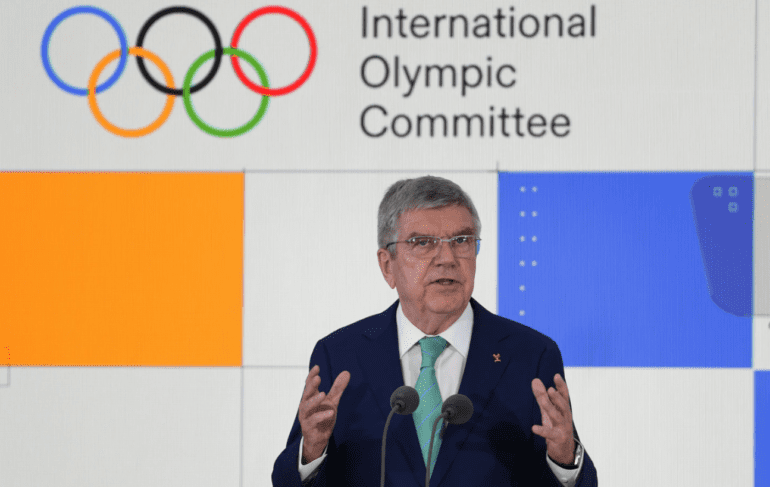- Olympic organizers revealed their AI strategy to revolutionize sports.
- AI will be used for athlete identification, personalized training, and fairer judging.
- Paris Olympics will showcase AI applications, including enhanced broadcast experiences.
- Controversy surrounds AI security measures, but the IOC trusts the host country’s decisions.
- Renowned skier, Lindsey Vonn praises AI’s positive impact on performance analysis.
- Intel collaboration in Senegal highlights AI’s role in talent scouting for the Olympics.
Main AI News:
Olympic organizers have unveiled their comprehensive strategy aimed at leveraging artificial intelligence (AI) within the realm of sports. This strategic move aligns with the global trend of harnessing swift advancements in technology for sporting excellence.
The International Olympic Committee (IOC) has delineated its roadmap for effectively integrating AI into various aspects of sports. This includes utilizing AI to identify and nurture talented athletes, customize training methodologies, and enhance the fairness of competitions by refining judging processes.
In a press briefing held at the velodrome within the Olympic Park in London, IOC President Thomas Bach emphasized the significance of embracing change to preserve the distinctive essence of the Olympic Games and ensure the enduring relevance of sports. “Today, we are taking another stride towards securing the uniqueness of the Olympic Games and the vitality of sports. To achieve this, we must lead the charge for change,” stated Bach.
Moreover, Bach underscored the IOC’s commitment to harnessing the vast potential of AI in a responsible manner, emphasizing the importance of ethical considerations in deploying AI technologies within the realm of sports.
This unveiling of the IOC’s AI master plan comes as preparations intensify for the forthcoming Paris Olympics, slated to commence in less than 100 days. The IOC’s AI initiatives extend to safeguarding athletes from online harassment and enhancing the broadcasting experience for viewers tuning in from across the globe. Given the substantial revenue generated through broadcast rights sales, optimizing the viewing experience holds significant importance for the IOC.
Several AI initiatives are slated for implementation during the Paris games, with the IOC establishing a dedicated working group focused on driving the adoption of AI in sports. While specifics regarding the rollout of AI projects remain undisclosed, Bach affirmed the IOC’s commitment to leveraging AI to augment various facets of the Olympic Games.
However, controversies have arisen surrounding the integration of AI for security purposes by the local organizers of the Paris games. Plans to employ AI-powered surveillance systems have drawn scrutiny, particularly regarding potential privacy infringements. Despite assurances from the French government that facial recognition technology won’t be utilized, concerns persist among digital watchdog groups.
Addressing these apprehensions, Bach emphasized the prerogative of host countries to determine the most effective security measures for safeguarding the games. Expressing confidence in the capabilities of the French authorities to ensure comprehensive security arrangements, Bach reiterated the IOC’s trust in the host nation’s efforts.
Renowned skier, Lindsey Vonn expressed admiration for the AI-driven tools, highlighting their transformative potential in enhancing athletic performance. Vonn reminisced about her early career, contrasting the manual note-taking methods she employed with the sophisticated data analysis facilitated by AI technologies today. Emphasizing that AI supplements rather than replaces traditional coaching methods, Vonn emphasized the positive impact of AI in optimizing athletic performance.
The IOC’s collaboration with Intel exemplifies its proactive approach to scouting talent using AI capabilities. Intel’s initiative in Senegal, where they assessed the athletic prowess of children from rural villages, underscores the potential of AI in identifying promising athletes from overlooked regions. By analyzing data collected through AI algorithms, Intel identified promising talents, thereby broadening the scope of talent identification in sports.
Despite the transformative potential of AI, the IOC remains cognizant of associated risks. Bach cautioned against overly relying on AI algorithms to determine the trajectory of an athlete’s career, emphasizing the importance of preserving opportunities for athletes to explore diverse sporting disciplines.
Conclusion:
The strategic integration of AI by Olympic organizers marks a pivotal moment in the intersection of technology and sports. This initiative not only enhances athlete development and competition fairness but also presents lucrative opportunities for businesses specializing in AI solutions for sports analytics, broadcasting, and security. The market can anticipate a surge in demand for innovative AI-driven products and services tailored to optimize the sporting experience, both for athletes and spectators.

